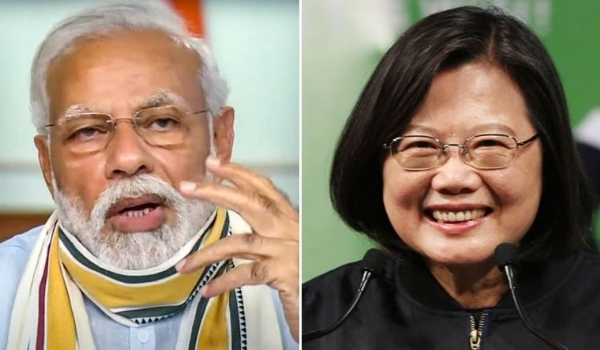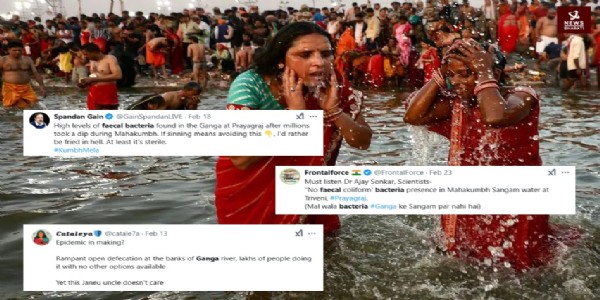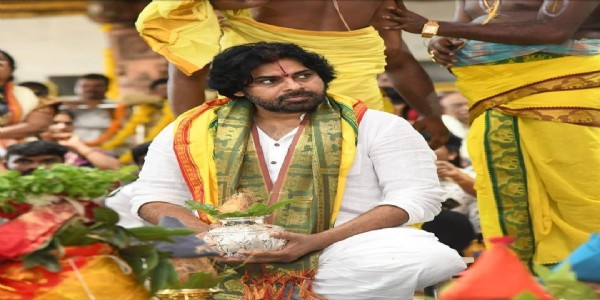NB Twitter Scan| India-Taiwan relations under Modi Government
Total Views | 81
This article is based on a Twitter thread by @sanahashmi1
How India's Taiwan policy has changed under the Narendra Modi administration.
A mix of continuity & change
1992- Look East Policy was launched
1995-Representative offices were established.
The focus has been on furthering eco, cultural, education & technological ties.

In 2014, there were expectations under Modi, due to his prior experience in dealing with Taiwan as the chief minister of Gujarat, India-Taiwan relations would get renewed attention or, at least, that the economic aspect of the relations would be further explored. In 1999, in his capacity as BJP's general secretary, Modi visited Taiwan. In 2011, he invited an 80-member business delegation from Taiwan to Gujarat- that was the biggest-ever delegation from Taiwan to India. Modi said: "Taiwan & Gujarat are made for each other.”
How India's Taiwan policy has changed under the @narendramodi administration:
— Sana Hashmi | 胡莎娜 (@sanahashmi1) June 30, 2023
A 🧵
A mix of continuity & change
➡️1992- Look East Policy was launched
➡️1995-Representative offices were established.
The focus has been on furthering eco, cultural, edu & technological ties. 1/17 pic.twitter.com/mvF1Wqv0eR
In 2014, these imp developments impacted India's Taiwan policy:
- The Look East Policy was upgraded to the Act East Policy- Taiwan wasn't officially included but is a key country within the policy framework- which led to an assertive push for courting more investments from Taiwan.
- Then Taiwan's Amb to India was invited to Modi's swearing-in ceremony.
- ThenIndiaEAM Sushma Swaraj asked herChinacounterpart to uphold the One India Policy ifChinawants reciprocity on the One China Policy. One India Policy that has been a non-starter for China-that was the beginning of India abandoning OCP.
2016: The India-Taiwan parliamentary friendship association was formed. 2016: 2 BJP MPs, Meenakshi Lekhi (who later became Minister of State for External Affairs & Culture of India) and Rahul Kaswan virtually attended the first swearing-in ceremony of Tsai Ing-wen. 2017: An-all women's parliamentary delegation from Taiwan visited India. Expectedly, China lodged a strong protest & GT came out with an editorial accusing India of playing with fire
2018: MEA defended Air India's decision to edit its website to change the name of Taiwan to Chinese Taipei
The Doklam standoff, China's olive branch to India, the informal summits, & India's hope to achieve a breakthrough in the boundary dispute led to a slowdown in India-Taiwan interactions. However, economic ties continued to grow.
2018: an upgraded bilateral investment treaty was signed.
COVID led to a greater appreciation/understanding of Taiwan among Indian people & civil society. This was aided by the deterioration in India-China relations. India's approach towards Taiwan began to change slowly but steadily. 2020: On the China embassy in India's diktat to the media regarding referring to Taiwan as a country, the MEA spokesperson responded, “There is a free media in India and reports as it sees fit" 2021: MEA sent a condolence message for Hualien train crash victims. November 2021: Meenakshi Lekhi, Minister of State for External Affairs and Culture, reciprocated Diwali wishes by Taiwan in India. Ministry of External Affairs responded to a media query on China's military intimidation in the aftermath of Pelosi's Taiwan visit: "We urge the exercise of restraint, avoidance of unilateral actions to change status quo, de-escalation of tensions & efforts to maintain peace &stability in the region" Post-pandemic, there has been a resumption of economic dialogue, state-level delegation visits, and deputy-minister level exchanges. Trade has finally crossed the US$ 10 billion mark. India is actively courting Taiwanese investments. Modi has met Foxconn chairman Young Liu at least twice in the recent past. Taiwan plays a significant role in India's efforts for diversifying, reducing dependence on the Chinese economy, & fostering self-reliant India.
India’s cautious behavior towards Taiwan has changed to a more pragmatic “wait-and-act” approach.
Reasons for a change in India's Taiwan policy:
- Taiwan’s outreach to India (partly NSP)
- The deterioration in India-China relations
- The prospects of mutual benefit
India doesn't see Taiwan as a card- that might jeopardize the prospects of engagement. Taiwan is identified as a key economic partner for India. WhileChinafactor was a catalyst, the change in India's Taiwan policy is linked to Taiwan’s economic stature & rising profile, mutual benefit. As India gradually overcomes its hesitancy in engaging Taiwan, the emerging trend indicates a positive trajectory in India-Taiwan relations in the future.
Bharati Web







